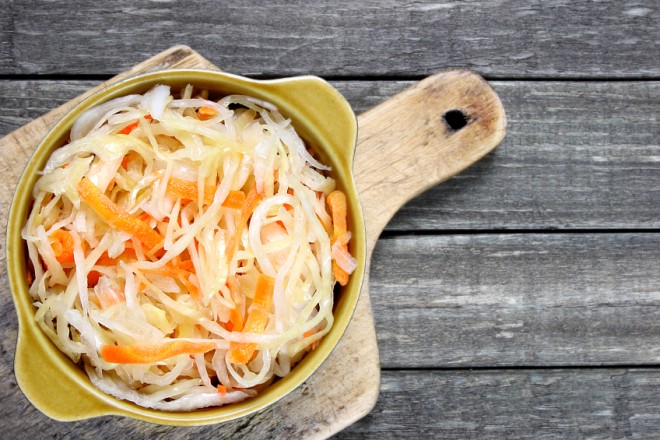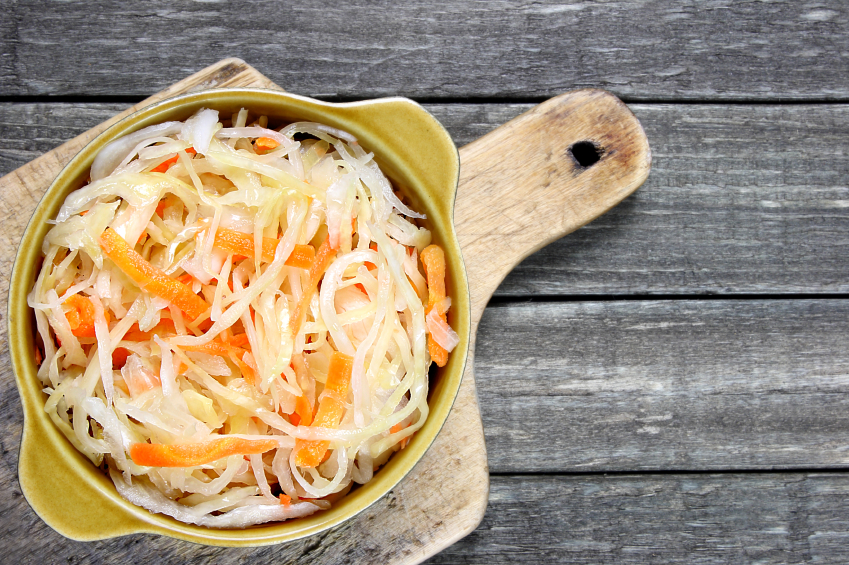According to a BBC documentary, your gut is the “second brain” of your body, and it directly affects important functions like digestion. As such, it is important that you take care of it.
One way of keeping your gut health in order is by including fermented foods in your diet. A Wall Street Journal article mentions that cultured or fermented foods help maintain an optimal balance of good and bad bacteria in your gut. The ideal ratio of good to bad bacteria is 85 to 15 percent.
Fermented foods are also a good source of vitamin K2, if produced using a proper starter culture. Plus, the good bacteria in fermented foods helps cleanse your body of any toxins and metals.
However, you should keep in mind that there is a big difference between the naturally fermented foods and the store-bought ones. Commercially available fermented foods like yogurt usually go through pasteurization that destroys their good bacteria.
There Are Many Kinds of Fermented Foods
Even though many people nowadays turn to processed foods because of their convenience, you should refrain from eating them because they can wreak havoc on your health. Instead, turn to a wholesome diet that is rich in probiotics, or good bacteria. Here are some examples of cultured foods that you should try:
- Condiments like salsa and mayonnaise
- Fermented dairy like sour cream
- Lassi – an Indian yoghurt drink, which is usually consumed before dinner
- Kefir – a fermented milk beverage
- Pickled fermented vegetables like cabbage, turnips, eggplant, cucumbers, onions, squash, and carrots
- Chutneys
- Natto – fermented sticky soybean
- Sauerkraut – fermented cabbage
- Tempeh – cultured soybean cake with a nutty flavor
- Kimchi – Korean fermented vegetable
Switching to a Diet Rich in ‘Good Bacteria’
Eating a wide variety of fermented foods is key to inoculating your gut with different kinds of good bacteria. However, it’s best to consume them in moderation. According to Caroline Barringer, a nutritional therapy practitioner, you should consume a quarter to half a cup of fermented foods with one to three meals each day.
When starting out, you can either ferment using a starter culture or just let it ferment on its own, which is called “wild fermentation.”
Sandor Katz, author of Wild Fermentation, advises that “bruising” your vegetable is important, as it will produce the much-needed juice in fermenting. Make sure that you cover your fermented foods with its juice and that there is no space for air inside.
Sandor also noted that there is practically no limit when it comes to fermenting foods since you can culture all available vegetables and fruits.
The Container You Use May Affect the Nutrients in Your Fermented Foods
Where to store your fermented foods is also a matter of concern. Avoid using plastic containers as they contain bisphenol-A (BPA) and phthalates, which can leach into your food. Metal containers should also be avoided as they corrode with salted foods (salt is commonly used to fermented vegetables, as it brings out their natural juices).
You can use the following containers when storing your cultured foods:
- Glass jars
- Ceramic pots
- Wooden barrels
Ideally, you should store your jars in a warm and slightly moist area for one to four days. However, remember that you should not store it in a place that’s scorching hot since too much heat will kill the good bacteria. Aim for a temperature of 68 to 75 degrees Fahrenheit.
After two days, take time to occasionally taste your fermented food, but you should always use a clean spoon every time, since you might transfer unwanted microorganisms from your mouth to the jar. After about a week, your fermented food should be ready for consumption.
My Guest Blogger – About the Author
Naiza Mendoza writes for Mercola.com and is currently researching probiotic supplements. She is also writing articles about the benefits of fermented foods when included in a wholesome diet.
Love, Rachel Feldman














